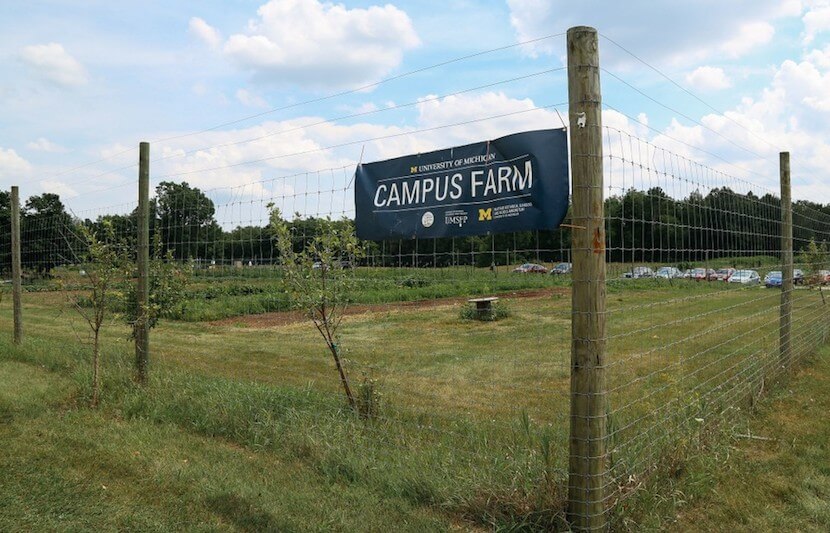Students at the University of Michigan are reaping the benefits of their student-run campus farm.
Michigan students have long been interested in growing vegetables on their campus. A student organization known as Cultivating Community, which was formed in 2004, broke ground on a garden at their campus’ Ginsberg Center for Community Service and Learning in 2005. Now, year-round production on the campus farm has been made possible with the construction of a sizable hoop house by students in the fall of 2016. This type of agricultural technology makes sense for the campus because it allows for the growth of vegetables throughout the entire year, even through the cold winter months. The farm is located directly adjacent to the campus’ Matthaei Botanical Gardens, a popular conservatory that is open year-round.
The university has been supportive of the students’ efforts. Not only did it provide students with the space they needed, but it went a step further by providing the funds for a farm manager to be hired. The addition of a seasoned industry veteran to their community has helped the students learn the more technical side of agricultural business, including obtaining the proper certification to sell the vegetables they grow.
The University Network (TUN) spoke to Jeremy Moghtader, who holds the position of Campus Farm Manager at the university. Moghtader is no stranger to the world of college campus farms. Before his arrival at the University of Michigan, he held the position of Director of Programs for the Student Organic Farm at Michigan State University.
“Food, what we eat, how we grow it, how we buy it, and who has access to it, has deep and profound impacts on personal/public health, economic health, and the health of our environment,” said Moghtader. “It is critical that institutions like the University of Michigan help create the next generation of researchers, educators, innovators, and engaged citizens in this dynamic, trans-disciplinary and critically important field.”
Moghtader is pleased with how the farm has affected the campus, not just as a sustainable means of providing food but also as an out-of-classroom education for the students. “Development of the Campus Farm as a living learning laboratory, in partnership with stakeholders across campus engaging in teaching and research, and while producing high-quality, delicious, and nutritious student-grown produce for use in residence halls, is a big part of how we hope to create those outcomes here at UM,” he said.
The students behind the farm’s success are certainly doing their part, working hard to continue their efforts in their university’s growing sustainability movement.
The university plans on growing the program, and Moghtader has high hopes for the future as the campus farm continues to grow in more ways than one. “We are engaging faculty and student researchers looking at ecological production practices and life cycle analysis of foods we are growing for Michigan Dining, including utilization of cover crops and campus food waste in providing fertility needed to grow produce for campus,” Moghtader told TUN. “We also plan to build two more passive solar greenhouses this fall that will allow for year-round food production in our cold climate. This will create more opportunities for student engagement and leadership during the academic year, and it should also provide more local and sustainable produce for Michigan Dining to use in student meals.”
Moghtader is proud of the organization’s success in an endeavour that has truly come full circle. It is, as he summarized for TUN, “food grown by students and prepared by students,” to be eaten by students.



